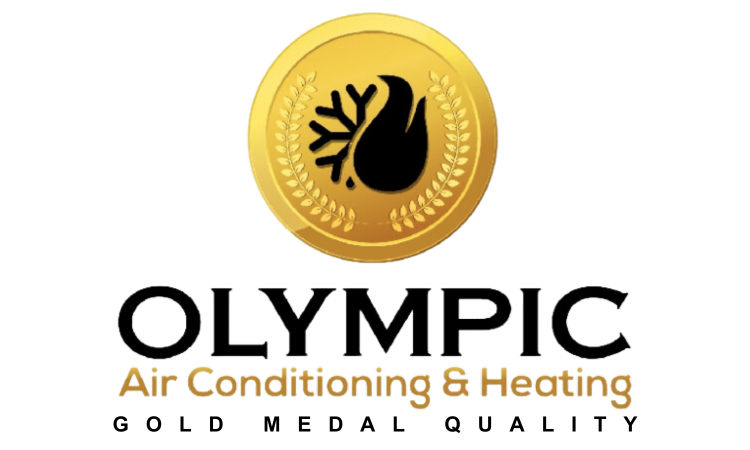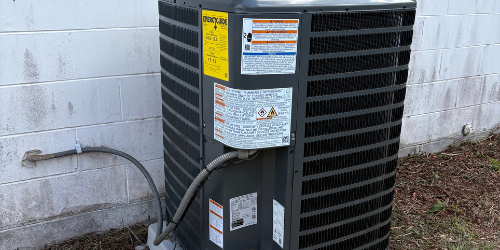In Deltona, FL, where hot and humid summers meet cooler, damp winters, having a reliable and efficient HVAC system isn’t just about comfort—it’s essential for your well-being. Choosing the right HVAC installation for your home ensures consistent indoor air quality, better energy efficiency, and lower utility bills. With so many options available, from traditional central air systems to modern heat pumps, it’s important to understand what works best for your specific space, lifestyle, and budget. This guide is designed to help homeowners in Deltona make confident, informed choices.
Key Takeaway:
Selecting the right HVAC system means balancing energy efficiency, comfort, and compatibility with your home’s layout and climate. With professional guidance, like that offered by Olympic Air Conditioning & Heating, you can find a system tailored to your exact needs.
Understanding Your Home’s Unique HVAC Needs
Climate and Seasonal Demands in Deltona, FL
Homes in Central Florida face distinct climate challenges. During peak summer months, temperatures soar, demanding reliable air conditioning, while winters bring chillier nights that require dependable heating. This unique balance makes HVAC systems like dual-function heat pumps especially practical. Choosing a system designed to accommodate Deltona’s seasonal shifts ensures year-round comfort and energy savings.
Home Layout and Construction Type
The age, size, and design of your home can influence what HVAC system will operate most efficiently. Newer homes may have tighter insulation and sealed windows, requiring less power to maintain temperatures. Older homes, on the other hand, often benefit from ductwork evaluations and potential upgrades. Whether you live in a one-story ranch or a multi-level colonial, understanding your home’s structure is vital to a successful HVAC installation.
Energy Efficiency Goals
Today’s homeowners prioritize energy conservation. Selecting ENERGY STAR® rated HVAC systems helps reduce environmental impact and monthly utility bills. Innovations such as variable-speed motors, smart thermostats, and zone-based climate control can dramatically improve overall system performance, maximizing comfort while minimizing consumption.
Exploring HVAC System Types and Features
Central Air Conditioning and Furnace Combos
This traditional setup remains popular in homes with existing ductwork. Central systems offer strong cooling power and consistent heating through a gas or electric furnace. For many Deltona homeowners with larger square footage, these systems strike a balance between affordability and performance.
Ductless Mini-Split Systems
Ideal for additions, older homes without ducts, or specific rooms requiring independent temperature control, ductless mini-splits offer flexibility. These systems are compact, efficient, and whisper-quiet. They’re also perfect for homeowners seeking targeted climate control without a full remodel.
Heat Pump Systems
Heat pumps are a smart choice for the Deltona climate. These all-in-one units provide both heating and cooling by transferring heat in or out of your home, depending on the season. They are especially efficient in moderate climates and can be paired with a backup furnace if needed. Their lower operational costs and eco-friendliness make them a top choice for energy-conscious homeowners.
Sizing and Placement Considerations
Importance of Correct System Sizing
An HVAC system that is too small will struggle to keep your home comfortable, while an oversized unit will cycle on and off too frequently, leading to premature wear and energy waste. A professional load calculation considers square footage, ceiling height, window types, and insulation to determine the correct system size for your home.
Strategic Unit Placement
Where your system is installed matters. Indoor units should be centrally located for even airflow, while outdoor units need adequate clearance for ventilation. Proper placement ensures better efficiency, quieter operation, and easier maintenance access.
Ductwork Evaluation and Airflow
Before installing a new system, inspecting your ductwork for leaks or blockages is essential. Inconsistent airflow can compromise your system’s performance. Sealing ducts, adding insulation, or upgrading old registers can enhance your new system’s output and longevity.
Installation Process and What to Expect
Choosing a Trusted Local Contractor
Hiring a licensed, experienced HVAC contractor in Deltona like Olympic Air Conditioning & Heating is critical. A professional team will guide you through system selection, installation scheduling, permits, and post-installation inspections. Their understanding of local building codes and weather challenges ensures a smooth process.
Timeline and Preparation
Installation typically takes one to three days, depending on the system type and complexity. Your HVAC team may need access to attics, crawl spaces, or basements, so preparing the area in advance can streamline the process. Clear communication with your contractor will help you plan accordingly.
Post-Installation Walkthrough
Once installation is complete, your contractor should demonstrate how to operate your system, set the thermostat, and discuss important maintenance steps. This walkthrough is a great opportunity to ask questions and schedule your first HVAC maintenance visit to ensure long-term system health.
Long-Term Care and Maintenance Tips
Seasonal Inspections and Filter Changes
Routine maintenance is the key to keeping your HVAC system running efficiently. Filters should be replaced every 1–3 months, and systems should be inspected seasonally by a professional technician to catch minor issues before they turn into costly repairs.
Benefits of Maintenance Plans
Enrolling in an HVAC maintenance plan offers peace of mind and consistent system performance. These plans often include seasonal tune-ups, priority service, and discounts on repairs—valuable benefits for any homeowner looking to extend their HVAC investment.
Energy-Saving Habits
Simple habits like using ceiling fans, setting programmable thermostats, and keeping vents unblocked can complement your HVAC system and reduce strain. Efficient home habits and proper system care work hand in hand to keep energy bills low and comfort levels high.
Answering Common Questions
How do I know which HVAC system is right for my home?
The best way to determine the right system is through a professional assessment of your home’s layout, size, insulation, and lifestyle preferences. HVAC experts like those at Olympic Air Conditioning & Heating can help you find a system tailored to your needs.
What’s the typical lifespan of a new HVAC system?
Most modern HVAC systems last 15 to 20 years with proper maintenance. Regular tune-ups and timely filter replacements can extend the life of your equipment and ensure optimal performance year-round.
Should I replace my ductwork during HVAC installation?
If your existing ducts are leaking, undersized, or poorly designed, replacing or repairing them during HVAC installation can improve system efficiency and airflow. A thorough duct inspection should be part of the planning process.
The Role of Home Construction in HVAC Choices
The design and materials used in your home’s construction directly impact heating and cooling demands. Well-insulated homes retain air more efficiently, allowing smaller systems to perform effectively. Conversely, homes with outdated construction may require upgraded systems or additional insulation for optimal HVAC performance.
The Impact of Air Conditioning Technology Advancements
Modern air conditioning units are more efficient and environmentally friendly than ever before. Innovations like variable-speed compressors, smart controls, and eco-friendly refrigerants make today’s systems quieter, cheaper to operate, and more responsive to your comfort needs.






